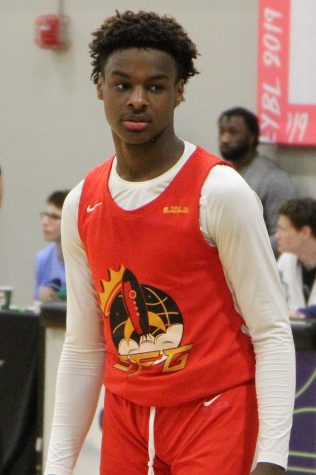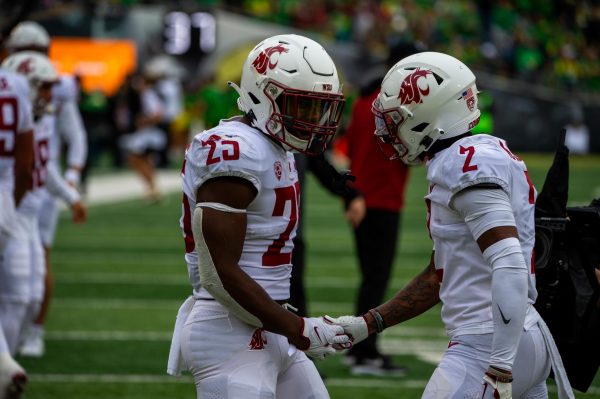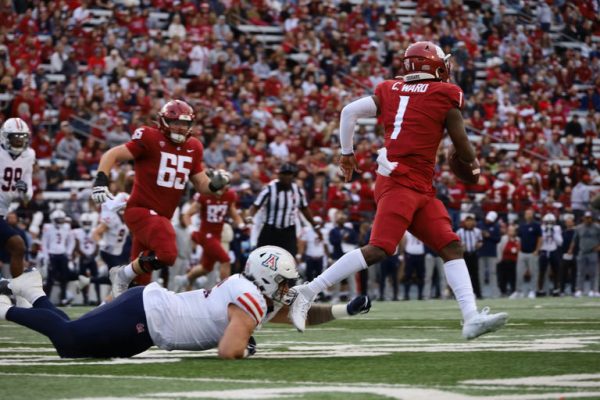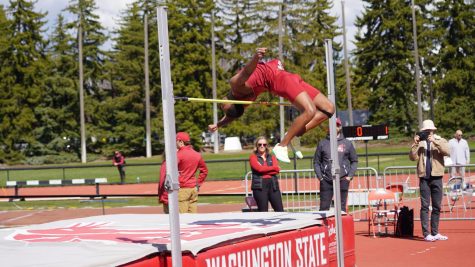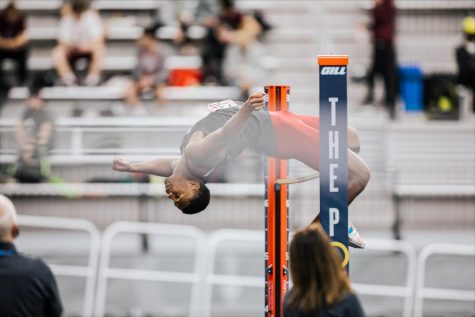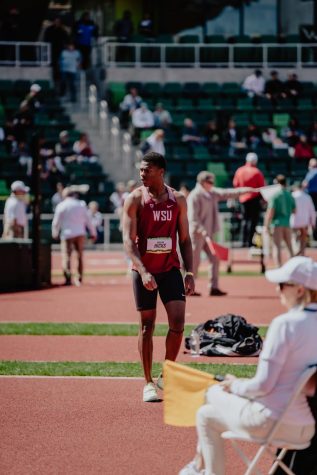Kaepernick unsigned is shameful for NFL
Kaepernick blazes trail for others to protest inequalities
ABBY LINNENKOHL | The Daily Evergreen
History Professor Spohnholz, Lukas Meader, and [not pictured] Damon Smith analyze the historical and current events surrounding Colin Kaepernick’s actions.
September 7, 2017
Race in America has been a controversial topic as of late. Many factors, such as the reemergence of white supremacists and the deaths of unarmed black men, have contributed to growing social injustices.
These issues have even made their way into the sporting world, sparking a national debate on free speech and race relations. Professional athletes like LeBron James of the Cleveland Cavaliers and Michael Bennett of the Seattle Seahawks have been outspoken on these issues.
One athlete furthered this debate after he chose to sit during the national anthem. This athlete’s name is Colin Kaepernick, and he was protesting the oppression of blacks and people of color in the United States.
At the time of his protest, Kaepernick was playing football for the San Francisco 49ers. Now, he remains a free agent, unsigned by a team.
To map out the general feeling about this issue on campus, I interviewed a few people. Based on what I gathered from students is that they are inconclusive — much like the issue is nationally.
Raymond McCormack, a freshman data analytics major, said that he’s unsure of how he feels about the issue. JP Varela, a senior finance major and political science minor, thinks differently.
“It is a free country and he should be able to demonstrate and express the freedoms that we all get to enjoy in this country,” Varela said. “Therefore, I don’t think there is anything wrong with what he did.”
There is a message behind what Kaepernick was trying to symbolize in his protest, Varela said. But there is also a reason people stand up for the national anthem.
While speaking with WSU professors, I received more background information surrounding the issue. The first professor I interviewed was Clif Stratton, assistant clinical professor of history.
Stratton’s research focused on the enduring role of racism in America and the resistance movements that counter it. He believes Kaepernick is being blackballed by the NFL after beginning a movement which sparked an important conversation.
“Sports is intimately related to our politics,” Stratton said as he tried to draw a parallel to Muhammad Ali’s stance on the Vietnam War. Ali refused to sign up for the draft because the Vietnamese were not his oppressors.
White supremacy was.
Stratton also referenced Mahmoud Abdul-Rauf, an NBA player who sat during the national anthem a couple decades ago. The league not only suspended him, but took away some of his pay.
Another example is the University of Missouri football team’s protest against then-President Tim Wolfe, who was dismissive of racial incidents.
Jesse Spohnholz, associate professor of history and director of the roots of contemporary issues world history program at WSU, referenced Kaepernick in his courses last year. He used the athlete’s controversy to teach on the historical roots of racial inequality.
I believe the answer to the question of whether Kaepernick is being blackballed by the NFL is tremendously complicated.
On one hand, it takes effort to incorporate him into a team. He is not a typical quarterback that can be inserted into any offense and succeed; he needs an offense to be built around his specific style of play. The fact that the 49ers posted a losing record last year also does not help his case.
On the other hand, teams are refusing to sign him, it seems, for his political stance. They know that giving him a contract will bring a lot of attention from the fan base — and maybe even distraction. But teams wouldn’t dare admit this when prompted on the issue.
What they do question, though, is Kaepernick’s desire to play or desire to make money — both of which he has denied.
There is no question that he is good enough to play. He met with the Seattle Seahawks before the pre-season. Kaepernick led his team to a Super Bowl and played in 12 games just last year. Surely, he could at least be a signed as a backup quarterback.
Jay Cutler, who recently retired, has a job; Brock Osweiler, who has been passed around from team to team, has a job. Yet, Kaepernick stood up against social injustices by sitting down during the national anthem, and he may never play a game in the NFL again.










